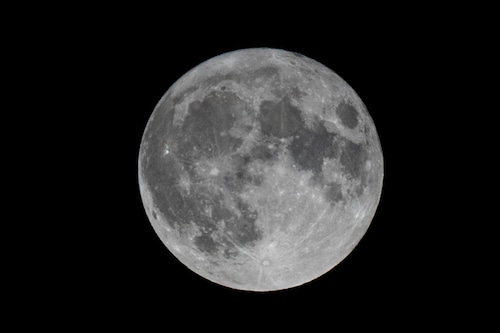If a lunar eclipse happens, and nobody is able to see it – even the people who are actively trying to see it – did it really happen at all?
While millions of people in the path of the April 8 total solar eclipse are no doubt buzzing with excitement about the chance to bask in totality – that rare moment of cosmic ecstasy when humans can gaze naked-eyed upon the atmosphere of the sun – far fewer are hyped about the penumbral lunar eclipse taking place just two weeks before.
Before you start to feel bad for the moon, consider that these are two very different events.
A total solar eclipse, during which the moon completely blocks out the light of the sun, offers what some viewers describe as “ecstatic reverence” or “a mystical experience” or “absolutely awesome.” People travel the world to make their way into the path of these eclipses, boasting of the number of minutes (or hours!) they have logged in that beautiful, eerie darkness.
The penumbral lunar eclipse, in which the Earth’s outer shadow slightly – slightly – darkens the moon, inspires no such poetry.
Jim Todd, space science director for the Oregon Museum of Science and Industry, graciously included the March 24-25 penumbral eclipse in his newsletter Wednesday. And while he dutifully noted the time it will be occurring (9:53 p.m. to 12:12 a.m.), as well as all the science behind it, he added that “some viewers cannot detect a difference on the moon’s face during a penumbral eclipse, even while the eclipse is in progress.”
In other words, if you didn’t know precisely when the eclipse was happening, you might not know it was happening at all.
That’s no knock on lunar eclipses as a whole. A total lunar eclipse, when the Earth gets between the sun and the moon, is a spectacular event that sees the moon turn various shades of red before darkening completely. Even a partial lunar eclipse, in which the light is not completely blocked, is a sight to behold – or at least a sight you can actually tell is happening. (The next chance to see a total lunar eclipse is Sept. 17 in Oregon.)
Every astronomical event is a fascinating experience that offers insights into the motions of the universe, a chance to connect to the cosmos and find a sense of awe. But if any astronomical event is skippable it’s this weekend’s penumbral lunar eclipse.
Instead, save your energy for April 8, when the Pacific Northwest will be able to see a partial solar eclipse. It’s not totality (meaning you will need eclipse glasses), but at least you’ll be able to see it.
--Jamie Hale covers travel and the outdoors and co-hosts the Peak Northwest podcast. Reach him at 503-294-4077, jhale@oregonian.com or @HaleJamesB.
Our journalism needs your support. Subscribe today to OregonLive.com.
